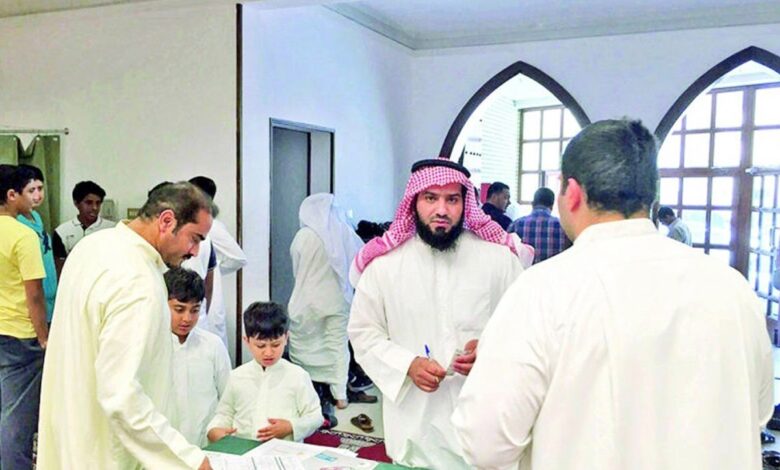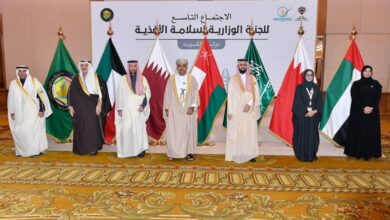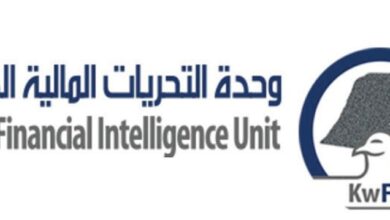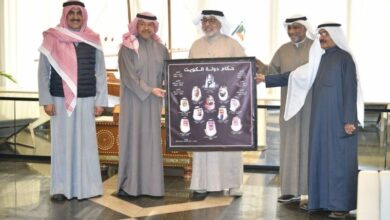“Social Affairs Ministry” sets 14 conditions for regulating Ramadan donation collections

The Ministry of Social Affairs, represented by the Department of Charitable Societies and Endowments, has circulated a set of 14 controls and requirements to the heads of all board of directors of registered charitable societies. These guidelines are for the collection of donations during the 22nd project, which is scheduled for the upcoming Ramadan.
The circular, obtained by Al Jarida, specifies that all charitable organizations are prohibited from engaging in cash donation collections in any form, whether at their headquarters or in public spaces. Instead, donations must be collected through licensed methods outlined in the Donation Collection Regulations (No. 128/A) of 2016. These approved methods include “K-Net” service, online platforms, bank deductions, Smartphone applications, electronic collection devices, and text messages from telecom companies.
Furthermore, collecting donations in unlicensed locations, such as shopping malls or public squares, is prohibited unless prior approval from the Ministry is obtained. Charitable organizations must also adhere to the specified collection times and locations in mosques, as determined by the Ministry of Endowments and Islamic Affairs, with details to be circulated to the participating charitable organizations.
Donations from Abroad
The circular emphasized that charitable organizations must obtain approval from the Ministry of Social Affairs if they receive any donations from abroad; in accordance with Article (30) of Law (24/1962) regarding clubs and public benefit associations.
Additionally, the organizations must use only the Ministry-approved bank accounts for collecting donations. The Ministry also requires the names of individuals responsible for the donation collection process to be submitted, so that identification cards can be issued. These cards will include clear details such as the dates of issue and expiration, along with the name of the association.
The circular also instructed associations to require their representatives to present the issued identification cards upon request by the Ministry’s inspection teams. Additionally, representatives are obligated to record the date of the donation, the name of the donor, and all relevant details clearly.
Furthermore, the circular required associations to ensure their representatives provide copies of the deductions after recording the details for each donor. They must also submit a copy of the “K-Net” transaction after the withdrawal. Also, the associations are obligated to document any non-cash donations, such as gold, silver, cars, or valuable items, by their weight or type, along with recording their equivalent value in dinars.
The circular also mandates that for gold and silver donations, a sales invoice must be provided to verify the sale value. For cars or other movable items, multiple price quotations must be obtained to ensure the highest price is selected based on purchase requests, following the procedures at the associations’ headquarters.
Additionally, the circular emphasized the importance of clearly dividing the amounts recorded in the deductions and ensuring that advertisements are only used for licensed projects, with the advertisement and license numbers being recorded.
Advertisements in Mosques
The circular stressed the importance of collecting donations through bank deductions and “K-Net” only within mosques. It also prohibited placing advertisements on the exterior or interior walls of mosques unless prior approval is obtained from the Ministries of Endowments and Islamic Affairs.
Furthermore, licensed associations are required to adhere to the schedule and times set by the Ministry of Endowments for collection activities inside mosques. A circular will be issued to mosque Imams, and the schedule for donation collection times will be circulated, coordinated with the Ministry of Endowments.
The circular emphasized that, following the completion of the project; associations must submit a detailed disclosure report to the Ministry within one month of the end of Ramadan 2025. This report should include donation revenues from various sources, such as “K-Net” collections via Ministry-approved electronic devices, checks, licensed online services, bank deductions, and text messages from licensed telecommunications companies.
Additionally, associations are required to provide a review balance for the project period and a detailed administrative report outlining what has been accomplished. This project must also be included in the association’s annual administrative and financial report.













